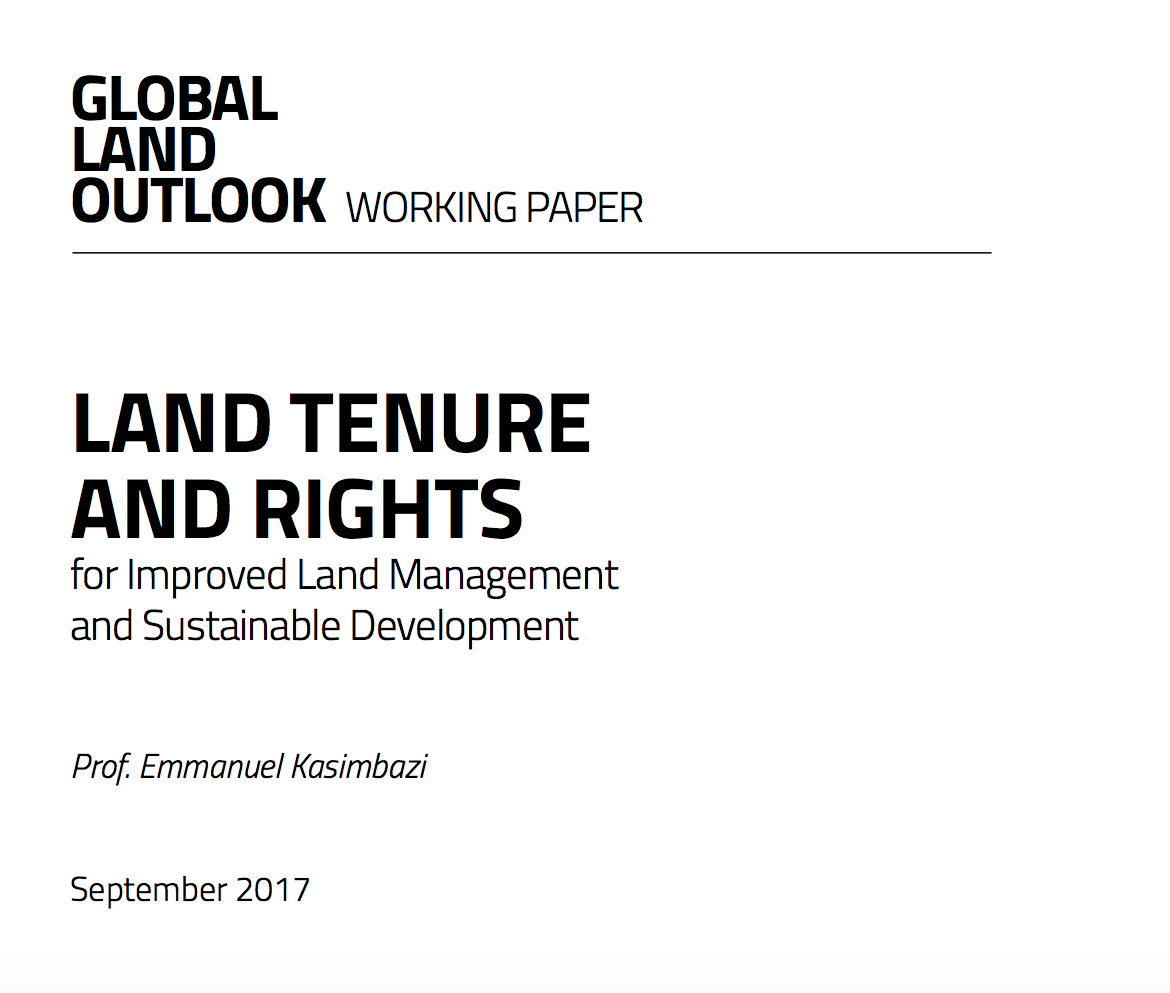Nicholas joined the Land Portal in September 2016 as a Research Analyst. Previously, he worked at the World Resources Institute (WRI), an environmental think tank in Washington D.C. At WRI, he assessed the land tenure security of indigenous and community lands for LandMark, a global platform of community lands. He also examined and wrote about expropriation laws and practices as well as environmental regulatory frameworks for WRI's The Access Initiative. In 2012-2013, Nicholas worked for the Law Reform Commission of Liberia in Monrovia and Oxfam India in New Delhi, where he conducted legal research related to land tenure, local governance, and other issues. He has a B.A.in Economics and Political Studies from Pitzer College and Doctor of Jurisprudence (JD) from Indiana University Maurer School of Law. Currently, he is pursuing at PhD at the University of Groningen Faculty of Law. His dissertation will focus on whether national expropriation, compensation, and resettlement laws in developing countries are adopting international standards designed to secure tenure rights and ensure responsible land governance.
Details
Location
Contributions
Displaying 21 - 30 of 72Involuntary Resettlement in Brazil: A Review of Policies and Practices
1. As Brazil embarks on a period of intensive infrastructure development—fueled by the upcoming World Cup, Olympics, and the government‘s ongoing Growth Acceleration Plan—it is an opportune time to review its experiences with land acquisition and displacement of affected persons, and to assess the extent to which its resettlement practices match up to international standards.
The Law of Expropriation for Public Utility, Decree-Law No. 3.365 of June 21, 1941
Art. 1 A desapropriacao por utilidade publica regular-se-a por esta lei, em todo 0 territ6rio nacional.
Art. 2 Mediante declaracao de utilidade publica, todos os hens poderao ser desapropriados pela Uniao, pelos Estados, Municfpios, Distrito Federal e Territories.
§ I A desapropriacao do espaco aereo ou do sub-solo so se tornara necessaria, quando de sua utilizacao resultar prejufzo patrimonial do proprietario do solo.
Act No. 4.504/1964 regulating rights and obligations regarding rural real estates in order to implement the Agricultural Reform and to promote the Agricultural Policy
This Act regulates the rights and obligations regarding rural real estates in order to implement the Agricultural Reform and to promote the Agricultural Policy. It is divided into 4 Parts composed of various Chapters.Part 1 is divided as follows: Principles and definitions (chap. I), defining types of agricultural land, associations, companies, cooperatives, etc.; Agreements (chap. II), laying down agreements between the agricultural Federal agents and the Brazilian Institute for Agricultural Reform which shall represent the central Government; Chapter III concerns (a) Public (sect.
Presidential Decree of the Islamic Republic of Afghanistan Concerning Modification of a Series of Articles of the Land Expropriation Law
NO: (7)
Date: 14/01/1384 (03/04/2005)
Article 1:
Sections (1&3) of article (3) and articles (12, 13, 16, 17, 20 and 22) shall be amended as follow:
1- Under section (1) of article 3 the expression ‘railway’ shall be added after the expression ‘highways’, and the text (and schools, implementation of urban plans) shall be added after the expression (seminaries or religious schools), and under section (3) of article 3 the expression (and legal) shall be added following the expression (canonical).
Law on Managing of Land Affairs
Article One:
This law is enacted the provisions of paragraph two article nine of constitution of Afghanistan in order to regulate the affairs of the land.
Objective
Article Two:
Objectives of the law have included:
Decree #83 of President of the Transitional Islamic State of Afghanistan on [immovable] Property (land)
Issue: 83
Date: 18/8/1382
In order for the executions of the state to be uniform and integrated regarding [immovable] property across the country, and to solve the problems [faced by] people and the state in this regard, I approve the following:
Land Management Law of Islamic Republic of Afghanistan
Article 1. Legal Basis
The present law has been enacted in accordance with the requirements of the clause 2 article 9 the Constitution of Afghanistan to ensure land management.
Article 2. Objectives
Temple Lands (Compensation) Ordinance 1944 (No. 28 of 1944)
According to the provisions of this Ordinance, where any land belonging to a temple is acquired for public purposes under the Land Acquisition Act, all sums of money awarded as compensation for or in respect of the acquisition of that land shall be paid to the Public Trustee.
Land Tenure and Rights for Improved Land Management and Sustainable Development
This working paper was commissioned by the United Nations Convention to Combat Desertification (UNCCD), in order to explore how land tenure systems in different ecosystems and bio-cultural regions around the world are linked to land degradation or sustainable land management. It is against this backdrop that five major issues surrounding land tenure, and rights for improved land management and sustainable development, are addressed; these are:
• Problems associated with land ownership (titling, tenure and customary rights);
UN Methodological Guidelines on the Production of Statistics on Asset Ownership from a Gender Perspective
The present publication provides national statistical agencies and policy makers with guidance on collecting, processing, analysing and disseminating individual-level data on asset ownership and control for the production of gender statistics. Although agricultural surveys and administrative data sources are briefly addressed, the focus of the guidelines is on household surveys for two key reasons.





